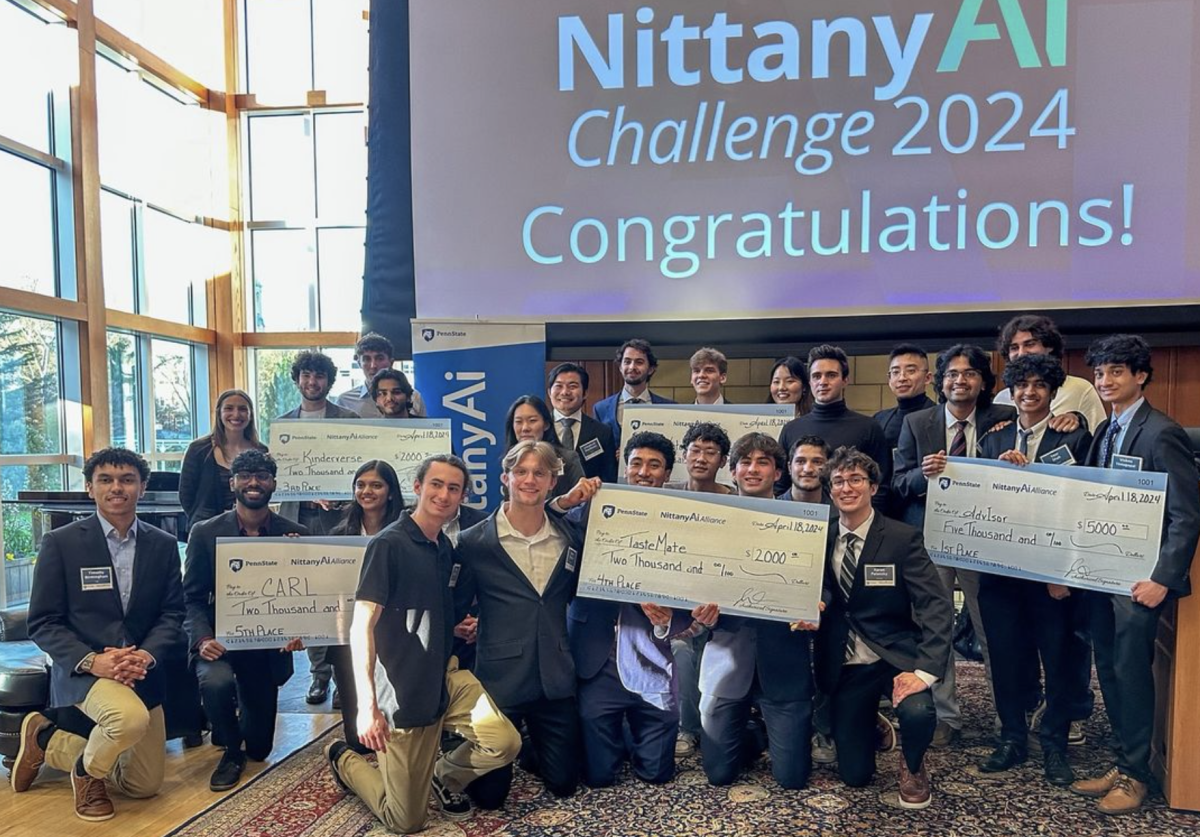By: Holly Riddle
 Image Credits: Nittany AI Alliance Instagram
Image Credits: Nittany AI Alliance Instagram
Earlier this year, McKinsey looked at research that showed that “gen AI talent,” or employees who use gen AI in the workplace to gain efficiency, are in high demand, providing value to their employers — but also presenting a flight risk. This talent knows its worth and is willing to take risks to find employers who recognize it, too.
This recognition isn’t necessarily in the form of greater compensation, the research showed. Instead, this talent wants the same things that many members of the Gen Z workforce have previously told HappyValley Industry that they want: flexibility, meaningful work and a workplace that cares about employee health and well-being.
We already know that Happy Valley is the place for a great work-life balance, and we hear time and again how much area talent value their meaningful work. Add in the wealth of outdoor recreation, short commute times and ample healthcare resources and the region offers everything that AI-focused talent could want.
“Knowing AI definitely gives me an edge.”
From a hiring perspective, Happy Valley is also an ideal spot for employers hoping to hire that so-called “gen AI talent.” There’s no shortage of AI enthusiasts graduating from Penn State every semester, eager for work, and more and more employees are picking up on AI use at local workplaces.
Take, for example, Omar Rady, co-founder of OfferPilot, an AI-powered platform that helps students find internships and jobs. AI forms the basis of his entrepreneurial endeavor, and says it’s benefited him in his and his colleagues’ work both within and outside the university setting.
He said, “We use AI to automate many of our workflows. AI has increased our quality, productivity and speed of work.”
“Knowing AI definitely gives me an edge,” he added. “It’s in high demand, so I can ask for better pay and benefits, because companies need these skills.”
From both his personal experience, as well as his work with OfferPilot, he said he’s noticed significant increases in demand for AI-related roles in the software and research industries, as well as applied AI roles across the board. He also expects demand to increase for AI engineers, planners, inspectors, maintainers and builders, in the near future.
“They understand that, sure, [AI] is jargon now, but it’s going to become the bread and butter of the future. They want to be at the cusp of it.”
One Penn State organization is partially dedicated to developing talent to fill these AI-related demands. The Nittany AI Student Society, as part of the Nittany AI Alliance, offers events and programming to help students learn more about AI, leverage it and pursue careers related to AI if they so choose.
The society’s director of marketing and operations, Aamani Sharma, said the society has been getting more and more attention from students from all majors, and for good reason. She said, “They understand that, sure, [AI] is jargon now, but it’s going to become the bread and butter of the future. They want to be at the cusp of it.”
“AI, simply put, is the future,” Sharma added. “We’re seeing this right now… We’re seeing it to the point where even the people that didn’t want to believe in AI are finding themselves in positions where they want to automate processes in their daily lives. They want to use some of those tools to help them out.”
Ryan Jai Hokimi, the society’s vice president, likewise weighed in: “AI is just an amazing tool and taking advantage of it and learning how to use it is so valuable, which is why the focus for our club now is not just [computer and information sciences majors]. We’re expanding because we want all students to be able to take advantage of this. It’s going to benefit them immensely.”
As mentioned, though, it’s not just Gen Z talent in Happy Valley that’s harnessing the power of AI to increase their value. Mark Dello Stritto, co-owner and vice president of creative at Blink, a marketing and advertising firm with offices in Bellefonte and Pittsburgh, has adopted AI. “It’s definitely a time-saver for our team for meeting reports, for example, and other project management tasks. And, when we’re at the proposal stage with a potential client or creating mock-ups for an existing client, and don’t yet have ideal photography, as another example,” he said. “AI can help generate sample photos that work well before we invest in custom photography.”
“Plus, the world is moving toward AI and, in our business, we have to keep up and use it to enhance our work and our business. Our employees need to master AI so that Blink can stay competitive, and they can stay competitive as professionals,” Dello Stritto continued.
Likewise, entrepreneur, author and founder of My Creative Community, Spud Marshall said he uses AI tools often, including ChatGPT, for tasks such as data synthesizing, pulling out key ideas and important notes from larger amounts of content and more.
“AI tools are super valuable to independent freelancers because we don’t have large teams that we can brainstorm with on a regular basis. It also allows us to work far more efficiently and focus our energy on delivering the work that we can uniquely do,” he said. “I’ve found that many of my clients are excited when I show them how I’m using AI, and it gives them ideas for ways they might integrate it into their own work.”
In short, Happy Valley professionals at every stage of their careers are well-equipped to use AI to increase their value.
Want to attract Happy Valley’s AI-savvy talent to your team?
In the aforementioned McKinsey article, McKinsey talent leader Aaron De Smet offered some advice for employers hoping to attract AI workers, saying, “Some of the factors that make the biggest difference are having caring leaders, meaningful work, flexible work [and] feeling a sense of inclusivity and community. These are some of the biggest factors that are making a difference in terms of attracting and retaining this kind of talent.”
How have you used AI in your workplace thus far? Are you hoping to hire more AI-savvy employees in the near future? Let us know.






